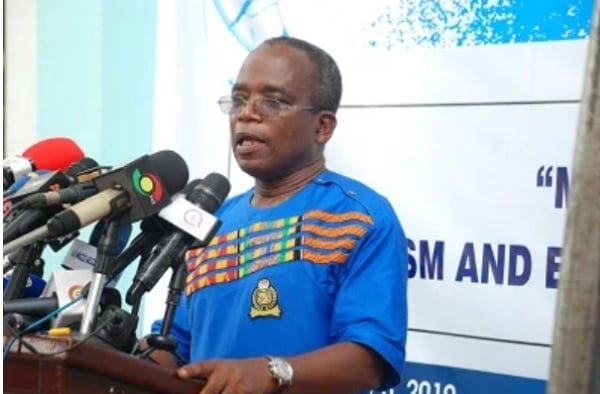At the “Media Forum on Election 2024” held in Kumasi on November 5, 2024, Yaw Boadu Ayeboafo, the Chairperson of the National Media Commission (NMC), emphasized the critical role of media outlets in the electoral process, particularly regarding the responsibility to refrain from usurping the Electoral Commission’s (EC) authority in announcing presidential election results. He reiterated that the EC is the sole entity empowered to declare final results, highlighting the constitutional basis for this mandate. Ayeboafo’s call for adherence to established protocols stems from the belief that verification and accuracy during elections are paramount, and he warned against the dangers of premature announcements that could exacerbate tensions within the populace.
Ayeboafo cautioned media representatives against hastily reporting results that have not been officially verified. He articulated that such actions could lead to confusion and turmoil among citizens, further stating, “When it happens like that and there is a delay, it is better that we wait rather than rush and publish what we will find out so as not to be validated, and put everybody in danger.” His remarks hinted at the potential chaos that can ensue when inaccurate information is disseminated, a concern that was particularly pertinent when reflecting on the aftermath of the previous election cycle.
Reflecting on the events surrounding the 2020 elections, Ayeboafo noted that undue claims made by political parties and media outlets heightened tensions and disrupted the peace that previously characterized the electoral environment. “Until the political parties started their press conferences, claiming that we have won or this one has won, there was peace in this country,” he remarked, attributing the post-election unrest to conflicting reports regarding the election outcomes. This historical context serves as a critical reminder of the media’s influential role in shaping public perceptions and responses around electoral events.
At the forum, which aimed to enhance the awareness of journalists regarding vital electoral issues, there was a concerted focus on combating misinformation, hate speech, and fake news leading up to the forthcoming December elections. Ayeboafo urged journalists to prioritize the verification of facts before releasing any electoral-related information, highlighting that accuracy is essential not just for maintaining public trust but also for ensuring a peaceful election process. His statements underscore the profound responsibility of media as gatekeepers of information, stressing that they must act prudently amidst political tumult.
As the nation gears up for Election 2024, Ayeboafo’s message revolved around the theme of responsible reporting, imploring media outlets to embrace their role as informative entities rather than influencers of electoral outcomes. He underscored the media’s duty to navigate the electoral landscape with care, particularly during times of heightened political sensitivity. His insistence on the use of thoughtful language and the careful selection of speakers during public discussions pointed to the delicate balance media must maintain in promoting a constructive dialogue while minimizing public unrest.
In closing, Ayeboafo’s address serves as a timely reminder for media practitioners to execute their duties with integrity and accountability, thereby fostering an environment conducive to a peaceful and transparent political process. The repercussions of their coverage can significantly impact the electoral climate, and with the challenges posed by misinformation and heightened political sensitivities, it becomes imperative for the media to uphold standards that promote informed citizenry and safeguard the democratic principles of the nation.


